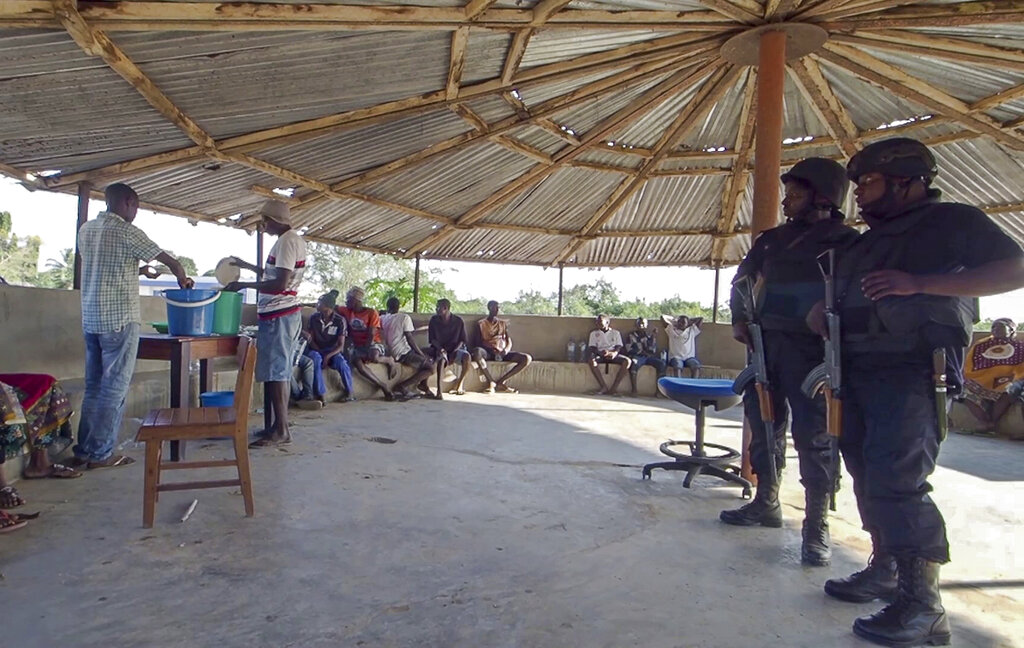ADF STAFF
During its more than two-year intervention in Mozambique, Rwanda has attempted to do something difficult: defeat an insurgency while avoiding civilian casualties.
According to a new study, there is evidence that it is succeeding, and its approach may offer a blueprint for future peace enforcement operations.
In 2021, Rwanda deployed 1,000 troops to Mozambique’s northern Cabo Delgado province at the request of Mozambican President Felipe Nyusi. Over time its force grew to 2,500, including police, and has worked parallel to a force deployed by the Southern African Development Community. Based primarily out of Palma and Mocímboa da Praia, the Rwandan troops have secured towns, reopened vital roadways and pursued extremists into remote hideouts.
By May 2023, Mozambican leaders said the insurgency had been decimated. During a tour of the area that same month, Mozambique’s Defence Minister Cristóvao Chume said that between 60% and 80% of the civilians who had fled the attacks had returned to their homes.
Ralph Shield, a conflict researcher with the U.S Naval War College, studied the actions of the Rwanda Defence Force and published his findings in the journal Small Wars & Insurgencies. He found that, following its own model of expeditionary counterinsurgency, Rwanda pursued militants while still “exercising discretion” in the use of force when there was a chance of civilian harm. In fact, he found, Rwanda was deployed to Mozambique for an entire year before inflicting its first recorded civilian fatality.
“Conventional wisdom would predict that an authoritarian government like Rwanda’s would be heavy-handed in putting down an insurrection,” Shield wrote in an article for The Conversation.
“But my findings suggest that’s not so in Mozambique.”
In a conversation with ADF, Shield pointed to three factors he believes helped Rwanda fight the insurgency while protecting civilians. Shield emphasized that his comments do not necessarily reflect the views of the war college or the U.S. government.
Winning Civilian Support: Rwandan forces, when on patrol, make it a point to interact with the local population and ask about their security needs. The troops speak Swahili, which is the primary language in the far north of Mozambique. Rwanda also places an emphasis on something it calls “umuganda,” or community work, where Soldiers work with civilians to construct public works projects like wells.
“A lot of it has to do with their posture,” Shield told ADF. “I call it contact patrolling, basically dismounted patrolling or mounted patrolling with an emphasis on contact with the local population and building community rapport. That’s a tradition that the Rwandans have had for some time.”
Restrained Use of Firepower: Shield’s research shows that Rwandan forces have exhibited “tactical restraint” while on patrol. He said the mission does not rely on air power or artillery that is less precise in targeting insurgents. He equally noted the “skill and confidence” Rwandan forces exhibited in Mozambique which he also observed in their efforts in the Central African Republic and in U.N. missions.
“Even small arms and light weapons can still inflict significant civilian casualties –– either through mistaken engagements or as collateral damage –– if forces have poor fire discipline,” he said. “Under the pressures of combat it can be very difficult to maintain restraint and I think they’ve done that quite well.”
An Environment Conducive to Success: Rwandan forces benefitted from the fact that, when they first deployed, much of the population had fled the towns in Cabo Delgado where they operated. This made it easier to avoid harming civilians. Additionally, the insurgents rarely used improvised explosive devices (IEDs) and did not launch suicide bomb attacks.
Without a significant fear of attack, it was easier for Rwandan troops to move freely and interact with civilians when they returned to their homes.
“The insurgents have generally not used IEDs; there have been some but they’re not as sophisticated as some that we’ve seen in other parts of Africa,” Shield said. “Those tactics really strain the commitment to tactical restraint. It makes the tradeoff between force protection and civilian protection that much more difficult.”
There is some evidence this is changing. Islamic State-aligned extremists took credit for six IED attacks against military patrols in the month of September.
Rwanda’s posture is based on “The Kigali Principles on the Protection of Civilians,” a set of 18 guidelines that were created in 2015, enumerating the ways peacekeepers should act to protect the population and prevent mass atrocities. The principles were born out of lessons from Rwanda’s history when, in 1994, U.N. peacekeepers did not act to stop a genocide.
In a 2016 discussion at the U.S. Institute of Peace, Gen. Patrick Nyamvumba, then-chief of defence staff, said the Kigali Principles should guide peacekeepers to act when necessary to protect people in danger.
“When we talk about use of force, it tends to be misconstrued as recklessness,” Nyamvumba said. “The worst examples that we’ve seen, whether it’s Rwanda or whether it’s Srebrenica, you had peacekeepers, things happened in their presence, and they didn’t take action. All we are saying is ‘OK, that was then, we can’t afford to do that now.’”

